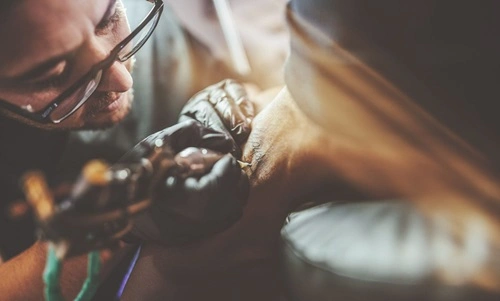Yes, in most states, it is illegal to get a tattoo under the age of 18 without parental consent, and in some states, it is completely prohibited regardless of parental approval. These laws are in place to protect minors from making permanent decisions before reaching the age of majority, as well as to ensure the health and safety of individuals undergoing tattoo procedures.
Overview of Tattoo Laws in the U.S.
1. Federal vs. State Laws
Tattooing laws in the United States are governed at the state level, not federally. This means each state has its own regulations regarding the legal age for tattoos.
2. The Age of Consent
In most states, 18 is the minimum age for getting a tattoo without any exceptions. Some states allow minors to get tattoos with written parental or legal guardian consent, while others outright ban tattooing minors, even with consent.
3. Health and Safety Concerns
The age restrictions are also tied to health and safety regulations. Tattoo parlors must comply with hygiene and sterilization standards, as tattooing involves breaking the skin and poses risks like infection or allergic reactions.
States With Strict Prohibitions
1. New York
Tattooing anyone under the age of 18 is strictly prohibited, even with parental consent. Violators, including tattoo artists, face fines or license revocation.
2. Florida
Minors under 16 cannot be tattooed under any circumstances. For those between 16 and 18, written and notarized parental consent is required.
3. California
California law prohibits tattooing anyone under 18, even with parental approval.
States Allowing Tattoos for Minors With Parental Consent
1. Texas
Minors may get tattoos with written parental consent, but the tattoo must cover an existing obscene or offensive tattoo. The parent or guardian must be present during the procedure.
2. Ohio
In Ohio, minors can be tattooed with parental consent, and the parent must be physically present at the time.
3. Indiana
Indiana allows tattooing minors with written consent and the parent or legal guardian present.
Penalties for Violating Tattoo Age Laws
1. Fines and License Revocation
Tattoo artists who violate age restrictions can face fines ranging from $500 to $5,000, depending on state law. Repeat offenses can lead to license revocation.
2. Criminal Charges
In some states, tattooing a minor without consent can result in misdemeanor charges, which may carry jail time.
3. Civil Liability
Parents or guardians may also file civil lawsuits if a tattoo was done illegally on their child.
Why These Laws Exist
1. Protection of Minors
The laws aim to protect minors from making impulsive, permanent decisions that they may regret later in life.
2. Health and Safety Risks
Tattoos carry risks, such as infections, scarring, and allergic reactions. The laws ensure that licensed professionals follow strict health guidelines when tattooing minors.
3. Ethical Considerations
Tattoo artists must adhere to ethical standards to ensure they are not exploiting or endangering minors.
In summary, The legality of getting a tattoo under the age of 18 varies significantly by state. Most states prohibit tattooing minors without parental consent, while a few impose outright bans regardless of parental approval. These laws are designed to safeguard the health, safety, and well-being of minors while ensuring ethical practices within the tattoo industry. Always check your state’s specific regulations before getting or providing a tattoo to someone under 18.
Related FAQs
Q1. Can a 17-year-old get a tattoo with parental consent?
Ans: Yes, in many states, a 17-year-old can get a tattoo with parental consent, but some states, like New York and California, prohibit it regardless of consent.
Q2. What happens if a minor gets a tattoo illegally?
Ans: The tattoo artist could face fines, license revocation, or criminal charges. The minor may need to have the tattoo removed, which can be expensive and painful.
Q3. Are there exceptions for medical tattoos?
Ans: Yes, some states allow minors to get medical tattoos (e.g., marking radiation therapy areas) with proper documentation from a healthcare provider.
Q4. Why do some states allow parental consent while others do not?
Ans: States that prohibit tattoos for minors even with parental consent prioritize the long-term impact of tattoos and believe minors should wait until they are adults to make such decisions.
Q5. Are temporary tattoos regulated for minors?
Ans: No, temporary tattoos like henna or airbrush tattoos are not subject to age restrictions, as they are non-permanent.

